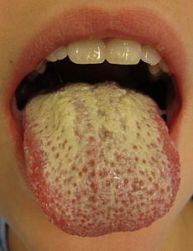Health
Candida Albicans: How to Identify a Yeast Infection
Guest Blogger: Deborah Dera
Candida albicans is the scientific term for the yeast that naturally lives in your body. In most people, the balance of healthy bacteria  and healthy yeast keep each other in check. If you should become ill and the balance of healthy bacteria and yeast no longer jive, the yeast can quickly create an overgrowth and manifest as a wide variety of conditions like the vaginal yeast infection, jock itch, oral thrush, and even leaky gut syndrome.
and healthy yeast keep each other in check. If you should become ill and the balance of healthy bacteria and yeast no longer jive, the yeast can quickly create an overgrowth and manifest as a wide variety of conditions like the vaginal yeast infection, jock itch, oral thrush, and even leaky gut syndrome.
Recognizing the Signs and Symptoms
The signs and symptoms of a yeast infection can vary depending on the type of infection a person has. Some of the most common symptoms include:
- Gas and bloating
- General weakness and a fuzzy headed feeling
- General fatigue
- Joint pain and discomfort
- Muscle pain and discomfort
- Indigestion and gastrointestinal difficulties
- Excessive mucus levels
- Heart palpitations
- Headaches and earaches
- Feelings of anxiety, depression, and lack of desire to socialize
- Menstrual problems and urinary tract infections
These symptoms obviously don’t “scream” yeast infection” to the average person. As a matter of fact, it is this type of symptom that often leads doctors to misdiagnose a person with a Candida issue with some other sort of disease. A misdiagnosis of a bacterial infection, and the subsequent antibiotic prescription, can actually make a Candida yeast infection worse.
Why is Candida So Often Misdiagnosed?
The problem with Candida infections, as noted above, is that they can can manifest with symptoms that mimic other diseases. While vaginal yeast infections, oral thrush, and jock itch are relatively easy to identify and remedy, they can be one-time infections or act as symptoms of a deeper full-body overgrowth.
A patient with a Candida infection needs to be diagnosed before any type of treatment begins. The average medical practitioner is more likely to treat an underlying infection or a disease caused by the Candida as opposed to the Candida itself.
Take, for example, the urinary tract infection listed above. Urinary tract infections are caused by bad bacteria. The Candida overgrowth in your body has not only left you with high levels of yeast but with lower levels of good bacteria, making it more difficult to fight off bad bacteria. You develop a urinary tract infection and your doctor gives you an antibiotic to treat the urinary tract infection. The antibiotic will further diminish the levels of good bacteria in your intestines and will effectively support the growth of even more yeast. It’s a vicious cycle.
How to Get a Proper Diagnosis
Keep track of your symptoms and ask your doctor the right questions. If you only tell him about your UTI pain but you never tell him about the recurring gastrointestinal symptoms, skin rashes, or vaginal infections, he may never put two and two together and order the right test. He’ll continue to treat what is essentially a symptom and never get to the root cause of your problem, causing recurring infections and other complications. If you suspect you have a Candida overgrowth, ask your doctor outright to do the correct tests to check for the condition. If your regular doctor won’t acknowledge your concerns, seek the assistance of a holistic practitioner.
Your average yeast infection, by itself, isn’t always the worst thing in the world. Left untreated, the candida in your body can morph quickly into full-body conditions, causing IBS, leaky gut, and toxicity your body can’t fight off on its own. The sooner you recognize your symptoms and get a diagnosis, the sooner you can get yourself onto the Candida diet and a course of probiotic and anti-fungal medications.
About the Author
Deborah Dera is a massage therapist, Reiki Master, and advocate of natural and alternative healing methods. She enjoys writing about health and wellness and spends a great deal of time researching food and herbal remedies for common conditions.
2 thoughts on “Candida Albicans: How to Identify a Yeast Infection”
Comments are closed.




It’s smart to see your doctor if you’ve never experienced a yeast infection before and you’re unsure if you’re dealing with one.
Signs of a yeast infection are a lot like sexually transmitted infections like gonorrhea so it’s important to get a professional diagnosis if you’re not sure what you’re dealing with.